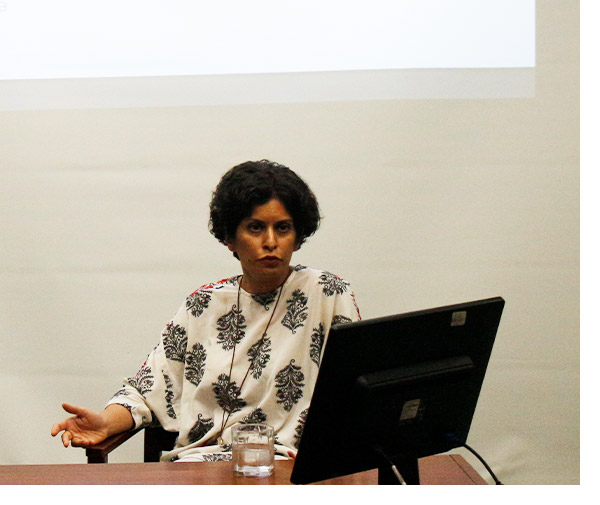 This talk was based on Dr. Faiza’s research on Pakistani women who participate in the religious classes and reformist activities of the group called Al-Huda. Some of them go on to take up leadership positions within the Al-Huda organizational network, basing their claims to authority on the model of the movement’s founder. She explored how the standards of ethical conduct are especially pronounced for a female religious authority figure, as are the risks of courting controversy and being deemed illegitimate. Using the conceptual framework of cultural entrepreneurship, she showed how influence is acquired by drawing on social network ties and re-combining symbolic as well as organizational resources. Especially important are the collaborative performances through which the leader demonstrates her status as an authoritative interpreter of Islamic texts, through emotional as well as cognitive cues, and with the organizational support of her staff.
This talk was based on Dr. Faiza’s research on Pakistani women who participate in the religious classes and reformist activities of the group called Al-Huda. Some of them go on to take up leadership positions within the Al-Huda organizational network, basing their claims to authority on the model of the movement’s founder. She explored how the standards of ethical conduct are especially pronounced for a female religious authority figure, as are the risks of courting controversy and being deemed illegitimate. Using the conceptual framework of cultural entrepreneurship, she showed how influence is acquired by drawing on social network ties and re-combining symbolic as well as organizational resources. Especially important are the collaborative performances through which the leader demonstrates her status as an authoritative interpreter of Islamic texts, through emotional as well as cognitive cues, and with the organizational support of her staff.
Dr. Faiza Mushtaq is Assistant Professor of Sociology and Chair of the Department of Social Sciences and Liberal Arts at the Institute of Business Administration (IBA), Karachi.
